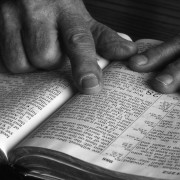Liturgical notes
Covenant Is Life-Giving
Our western me-centred culture has practically eliminated the notion of covenant from its understanding of relationships. Focusing on satisfying our ego generates a tit-for-tat attitude. “I’ll do this for you if you do that for me.” Relationships are perceived as contractual, not covenantal. A contract is a conditional agreement where I’ll uphold the agreement only as long as you uphold it. But if you don’t hold up your end I’ve no obligation to uphold mine. A covenant is unconditional. It means that I must honour our agreement whether or not you honour it. Just because one party violates a covenant doesn’t mean that other party isn’t still bound to keep it. Thus a covenant is life-giving because it keeps the relationship alive. With a contract the obligation ends and the relationship dies when one party reneges on the conditions. Because God is a Life-Giver He has entered a covenant relationship with His people rather than a contractual one. This is why Jesus made Christian marriage between a man and a woman a covenant relationship signifying its life-giving nature.
This Sunday Jesus’ Church reminds her members and the world that Jesus is the “mediator of a new covenant” agreement between God and mankind. (Heb 9:15) It’s the celebration of Jesus’ Most Holy Body and Blood which He gave as the visible sign of this covenant. He initiated it on Holy Thursday when He and His Apostles celebrated the Passover recalling the Old Covenant when God gave life to His people by freeing them from Egyptian slavery. “During the meal He (Jesus) took bread, blessed and broke it, and gave it to them. ‘Take this,’ He said, ‘this is my body.’ He likewise took a cup, gave thanks and passed it to them, and they all drank from it. He said to them: ‘This is my blood, the blood of the covenant, to be poured out on behalf of many.’” (Mk 14:22-24) Eating Jesus’ body under the form of unleavened bread and drinking His blood under the form of wine consecrated through His priesthood bestowed on His Apostles and their successors – the bishops and priests of His Church – celebrates the New Covenant. The Church’s Mass, which she celebrates every weekday and especially every Sunday, is the renewal of the Covenant which Jesus’ signed in His blood “in behalf of many.” By participating in the Mass Christians witness their fidelity to the New Covenant. The daily celebration of the Mass signifies Jesus’ fidelity to the Covenant even when His followers are unfaithful. Inspired by the Holy Spirit, St. Paul attests to this in his letter to Timothy. “You can depend on this: If we have died with Him we shall also live with Him; if we hold out to the end we shall also reign with Him. But if we deny Him He will deny us. If we are unfaithful He will still remain faithful, for he cannot deny Himself.” (2 Tim 2:11-13)
The Covenant initiated by Jesus is the last of a number of covenants God initiated in the formation of His Old Testament people. Jesus has initiated the final covenant. The covenant is based on unconditional love. The Mass is a sign of Jesus’ unconditional love for us where He offers us the unmerited life-giving gift of Himself in Holy Communion. It’s also a call to us to visibly hold up our end of the covenant agreement we made in Baptism and renewed in Confirmation. Our covenant response to God must be that of the Israelites after Moses read God’s words to them: “We will do everything the Lord has told us.” (Ex 24:7) Having committed themselves, Moses ratified the covenantal agreement between God and them. “Then he took blood and sprinkled it upon the people, saying, ‘This is the blood of the covenant which the Lord has made with you in accordance with all these words of His.’” (Ex 24:8) In every Mass we renew our covenant with God.
Blood signifies life. The signing of a covenant in blood demonstrates that the life-giving nature of the relationship. It involves sacrifice to demonstrate love. It involves eating and drinking to emphasize companionship, nourishment, and strength. In the Mass Jesus speaks to us in the Liturgy of the Word calling us to model our life on His. In the Liturgy of the Eucharist Jesus continues to sacrifice Himself in an unbloody manner by making Himself food for our soul so we can have life everlasting. This is why we should respond to His sacrifice in the words of the Psalmist: “To You I will offer sacrifice of thanksgiving and I will call upon the Name of the Lord. My vows to the Lord I will pay in the presence of all His people.” (Ps 116:17-18)
By entering a covenant with us God has set in motion the template for all our relationships. A covenant relationship calls for love, commitment, freedom, honesty, fidelity, responsibility, perseverance, forgiveness, loyalty, and hope. All these virtues are necessary for mature behaviour. They’re also necessary for creating a society that respects and reverences human life from conception to natural death. Covenant relationships promote sacrifice, generosity, justice, connectedness, and warmth. Contracts tend to promote selfishness, disconnectedness, and coldness. Jesus calls us to base our relationships on covenant rather than on contract so they can be life-giving. (frsos)


